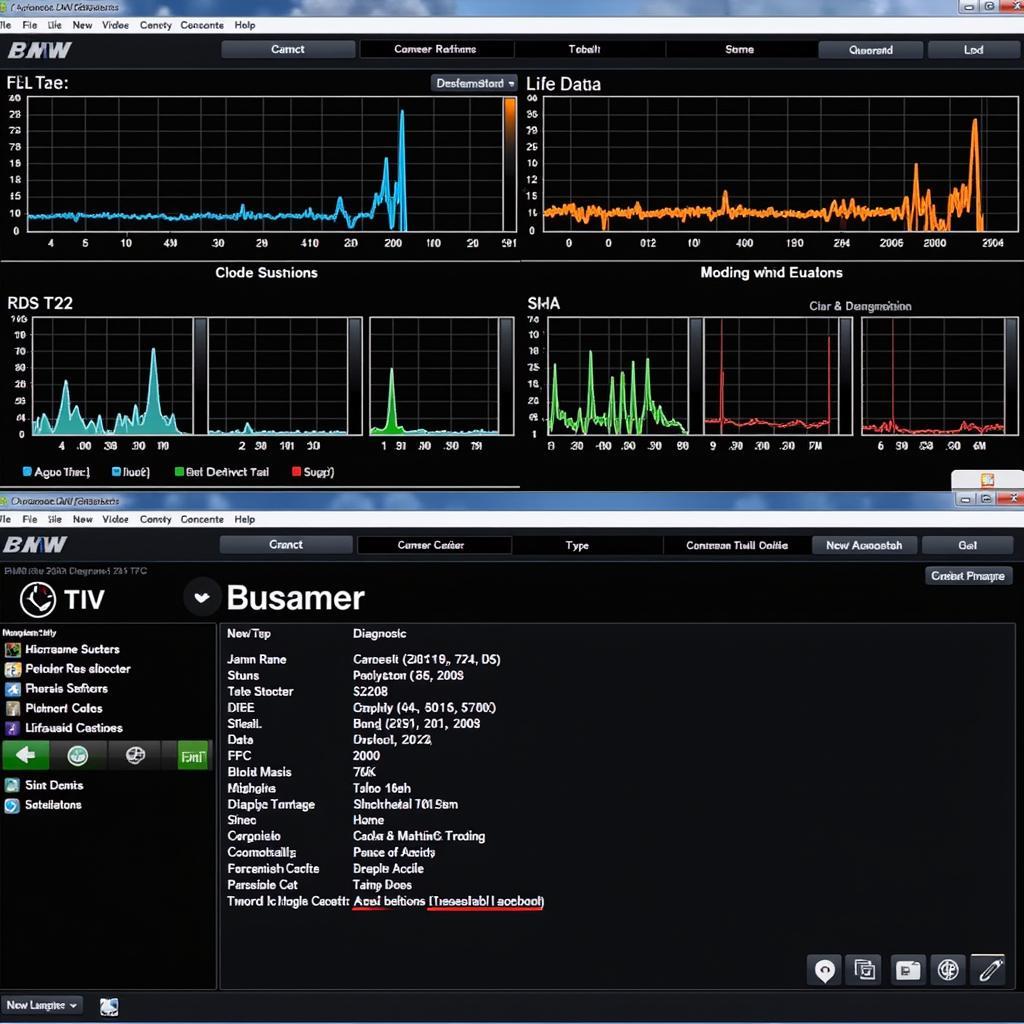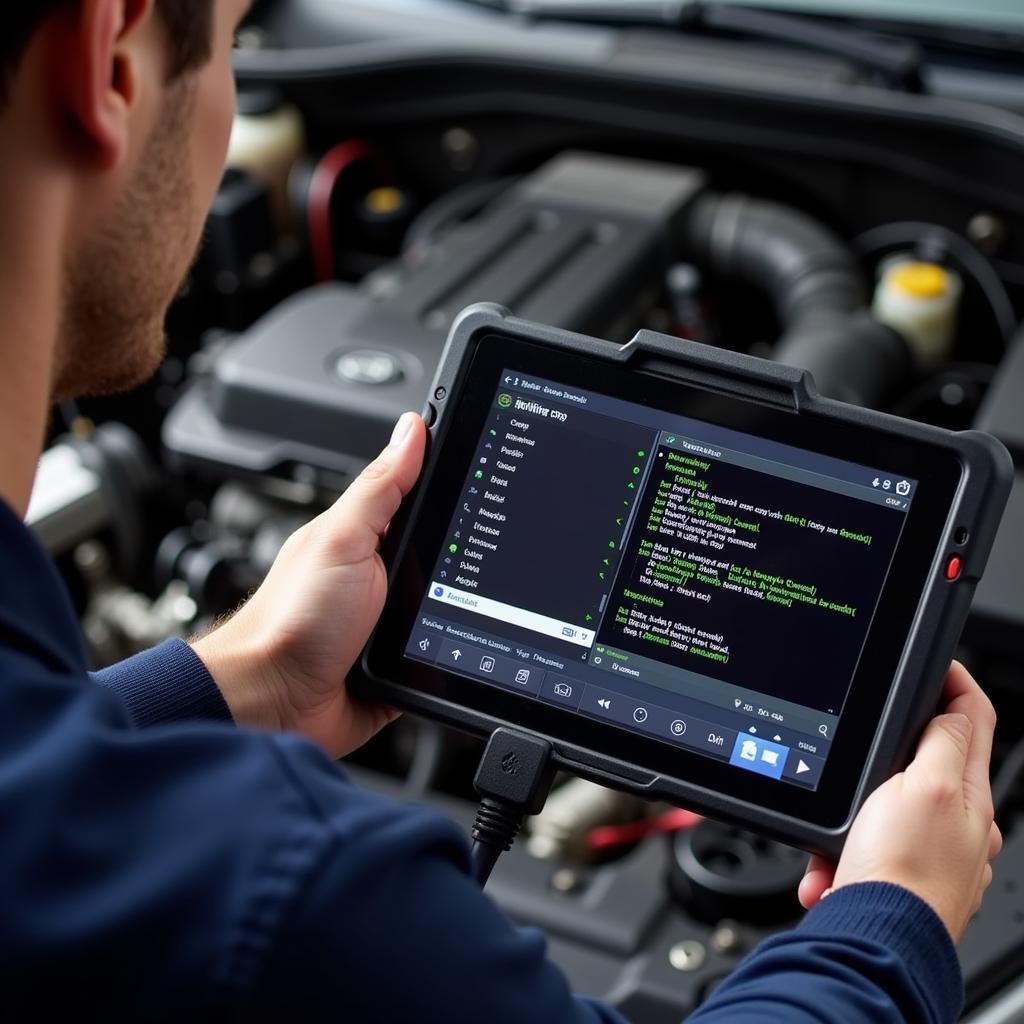A Car Full System Diagnostic Tool is essential for any mechanic or car enthusiast who wants to diagnose and repair modern vehicles quickly and efficiently. These tools offer comprehensive coverage of all vehicle systems, providing detailed information to troubleshoot issues effectively.
Understanding Car Full System Diagnostic Tools
Traditional diagnostic tools were often limited in their functionality, focusing on specific systems like the engine or transmission. In contrast, a full system diagnostic tool offers a much broader approach.
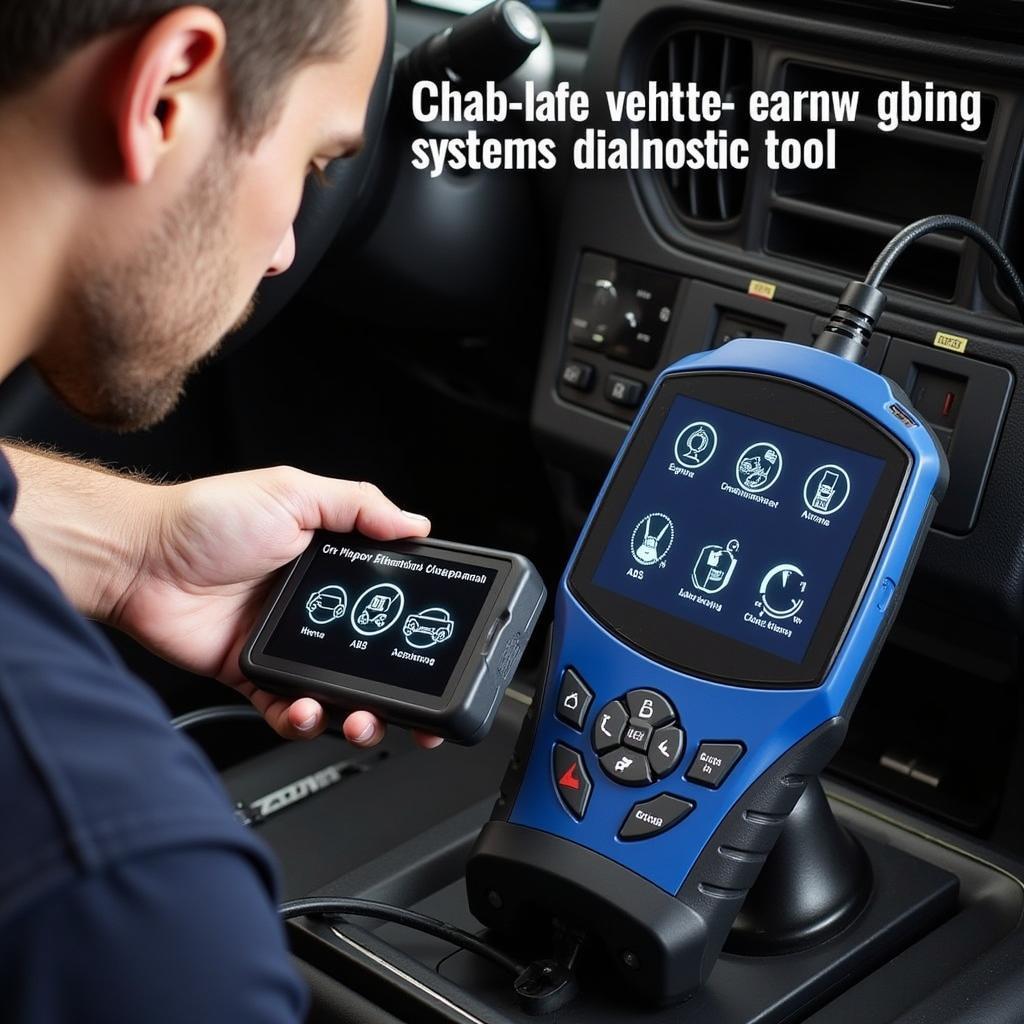 Car Full System Diagnostic Tool Overview
Car Full System Diagnostic Tool Overview
Here’s what sets them apart:
- Comprehensive Coverage: These tools can access and communicate with most vehicle systems, including engine, transmission, ABS, airbags, body control modules, and more.
- Advanced Diagnostics: They can read and clear diagnostic trouble codes (DTCs) from all modules, provide live data streams, and perform bi-directional controls (actuator tests).
- Wide Vehicle Compatibility: Many full system diagnostic tools support a wide range of vehicle makes, models, and years, often including both domestic and import vehicles.
Why You Need a Car Full System Diagnostic Tool
Whether you’re a seasoned mechanic or a dedicated DIYer, a full system diagnostic tool can be a game-changer.
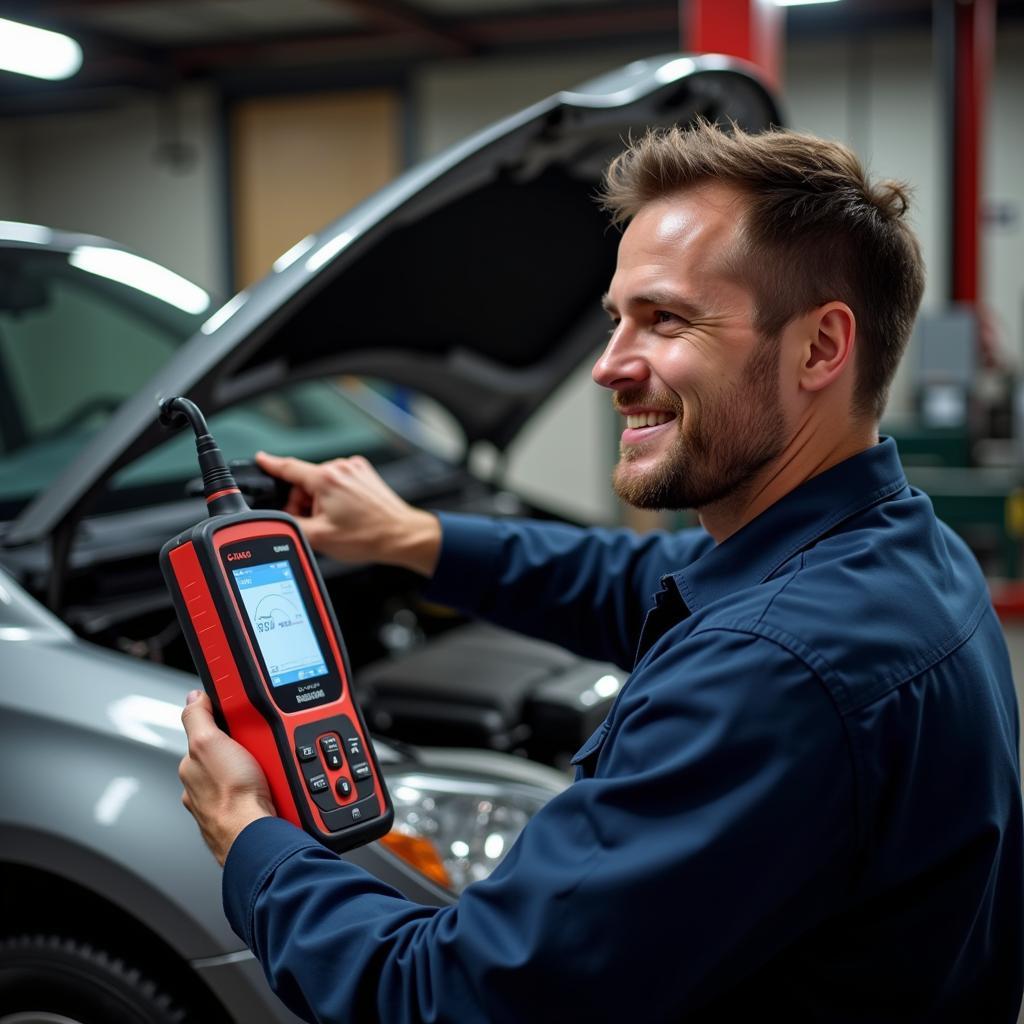 Mechanic Using Diagnostic Tool for Repair
Mechanic Using Diagnostic Tool for Repair
Here’s why:
- Accurate Diagnosis: Pinpoint the root cause of problems quickly and accurately, saving time and money on unnecessary repairs.
- Enhanced Efficiency: Access live data from various systems, allowing you to monitor performance, identify intermittent issues, and make informed repair decisions.
- Cost Savings: Avoid expensive trips to the mechanic for simple diagnostics, giving you greater control over your vehicle’s maintenance.
Choosing the Right Car Full System Diagnostic Tool
With the abundance of options available, selecting the right diagnostic tool can be daunting. Here’s what to consider:
- Vehicle Coverage: Ensure the tool supports the make, model, and year of your vehicle(s).
- Features: Determine the essential features you need, such as DTC reading/clearing, live data streaming, bi-directional controls, special functions, etc.
- User Friendliness: Look for a tool with an intuitive interface, clear navigation, and helpful resources like built-in repair information or troubleshooting guides.
- Budget: Prices can vary significantly, so set a budget beforehand and consider the features and functionality you require within that range.
“When choosing a diagnostic tool, it’s crucial to consider future needs. Investing in a tool with broader vehicle coverage and advanced features can save you headaches down the line,” advises John Miller, a senior automotive technician with over 20 years of experience.
Key Features to Look For
Here are some key features to prioritize when selecting a car full system diagnostic tool:
- DTC Reading and Clearing: This is a fundamental feature that allows you to read and erase fault codes stored in the vehicle’s computer, identifying the source of problems.
- Live Data Streaming: Access real-time data from various sensors and systems, enabling you to monitor performance, identify unusual readings, and pinpoint issues effectively.
- Bi-Directional Controls: This feature allows you to command actuators, such as solenoids, relays, and motors, to test their functionality and diagnose problems more accurately.
- Special Functions: Some tools offer advanced functionalities like key programming, injector coding, and module reset capabilities.
Common Uses of Car Full System Diagnostic Tools
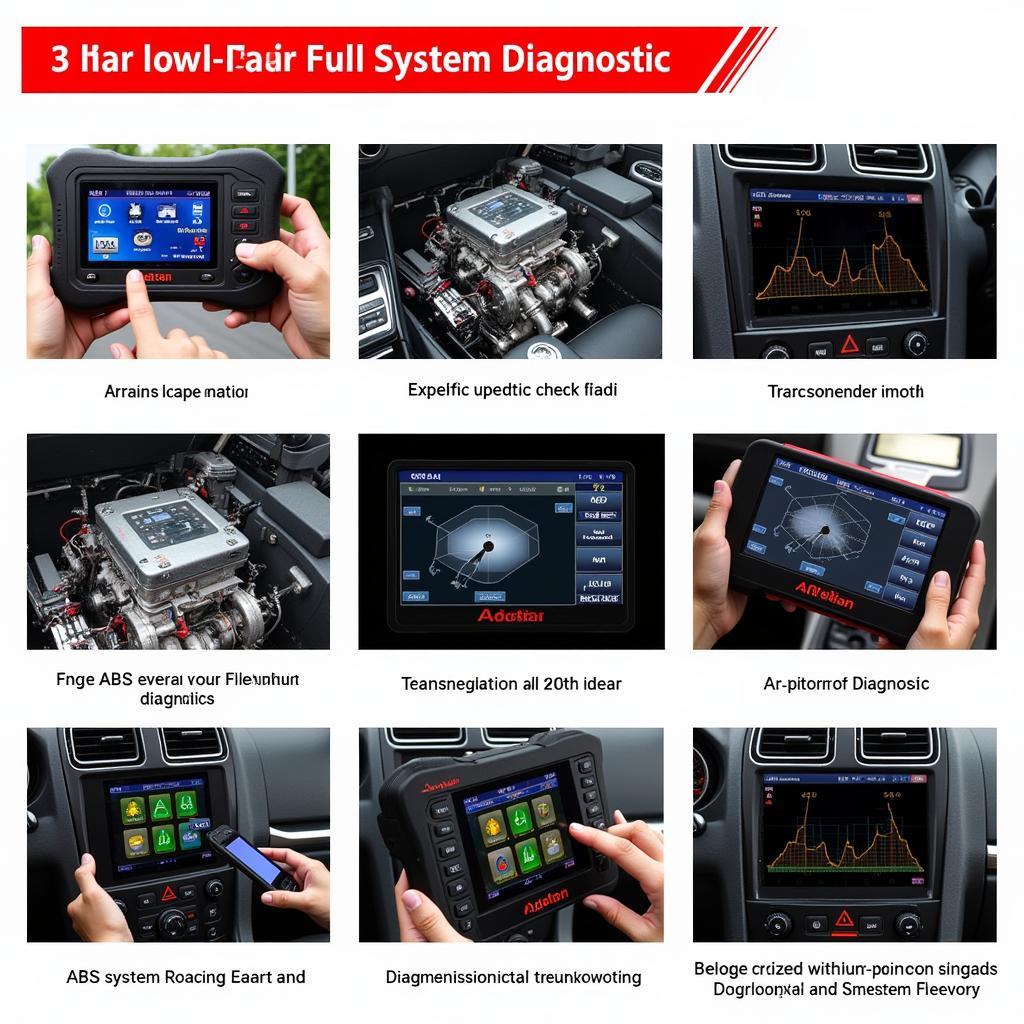 Various Applications of Diagnostic Tool
Various Applications of Diagnostic Tool
These tools have become indispensable for a wide range of automotive tasks:
- Engine Diagnostics: Identify issues related to engine performance, emissions, fuel systems, and more.
- Transmission Diagnostics: Troubleshoot problems with automatic and manual transmissions, including shifting issues, clutch problems, and fluid pressure concerns.
- ABS and Airbag Systems: Diagnose and repair issues related to anti-lock brakes, traction control, and supplemental restraint systems.
- Electronic Module Troubleshooting: Identify faults in various electronic control units (ECUs) responsible for managing different vehicle systems.
Conclusion
A car full system diagnostic tool is a valuable investment for anyone who wants to take control of their vehicle’s maintenance and repair. By providing comprehensive diagnostics and advanced functionalities, these tools empower users to identify and resolve issues efficiently, saving both time and money.
At ScanToolUS, we offer a wide range of top-quality diagnostic tools to meet your specific needs. Contact us at +1 (641) 206-8880 or visit our office at 1615 S Laramie Ave, Cicero, IL 60804, USA for expert advice and assistance in choosing the right tool for you.

